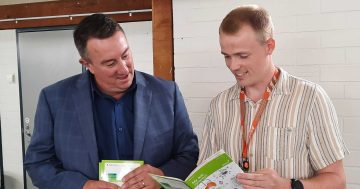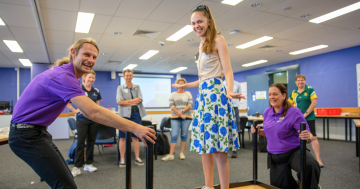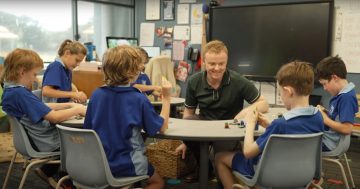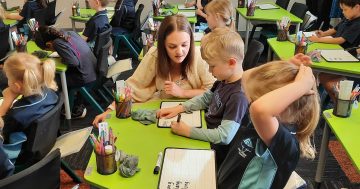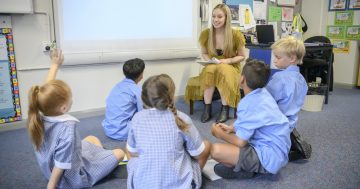 Classroom support staff in NSW public schools are to be guaranteed a permanent teaching job once they finish their training under a new pilot program the Department of Education has launched to grow the teaching workforce.
Classroom support staff in NSW public schools are to be guaranteed a permanent teaching job once they finish their training under a new pilot program the Department of Education has launched to grow the teaching workforce.
Announcing the initiative, Minister for Regional NSW, Paul Toole said the Department’s Grow Your Own Teacher Training pilot would initially support 100 School Learning Support Officers (SLSOs) to upskill and study teaching degrees while working in local schools.
“The program recognises the outstanding contribution SLSOs make in classrooms across the State and helps remove barriers to a teaching career,” Mr Toole said.
“We have generous financial incentives, including housing, to encourage teachers to work in our regional schools, but we’re also committed to fostering local talent,” he said.
“Our regional SLSOs have strong ties to their local community and are already doing fantastic work in our schools.”
Minister for Education and Early Learning, Sarah Mitchell said the pilot training program was complemented by another Grow Your Own stream that would encourage year 12 students and community members living in rural and regional areas to explore a career in teaching.
“The Grow Your Own Community Entry Pathway is about supporting school leavers who are interested in becoming teachers to stay at their local school and gain hands-on experience as SLSOs or classroom teacher support officers,” Ms Mitchell said.
“Through both Grow Your Own streams we are building new pathways to teaching careers that encourage and support young people into this rewarding profession.”
She said the Department of Education had partnered with Charles Sturt University and Western Sydney University to deliver the Grow Your Own Teacher Training pilot program, which was now open for applications.
“Participants will commence their studies in early 2023 and remain employed as an SLSO in their current school while studying,” Ms Mitchell said.
“They receive $10,000 training allowance per year (up to $30,000 for the degree) and can work part-time as an educational paraprofessional in their final four semesters of study.”
Further information on the pilot program can be accessed at this PS News link.


